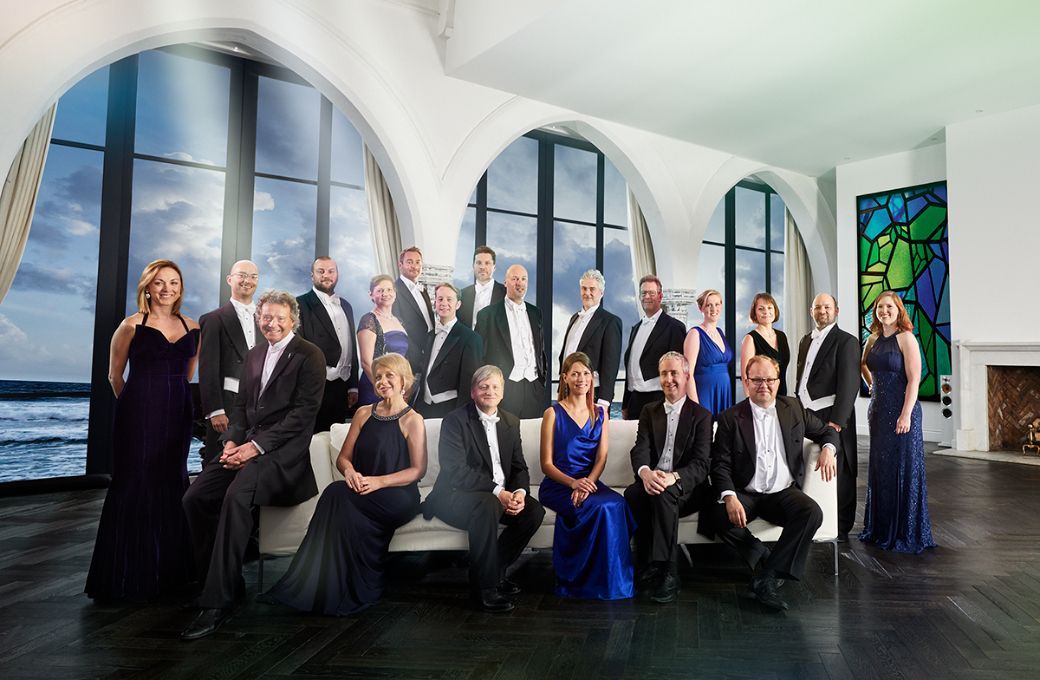I first heard The Sixteen ten years ago in Dublin and was instantly captivated. Tonight they were equally as impressive as I had remembered: pellucid tones, subtlety of timbre, lush legato phrases and vivid word-painting are just some of the defining characteristics of this group under the baton of the charismatic Harry Christophers.

The Sixteen (actually eighteen on stage, but we live in inflationary times!) specialise in English Renaissance polyphony and tonight’s programme reflected this. It also showed their characteristic intelligence in programming as there were many very clever intertextual points of reference. Philippe de Monte sent the manuscript of Super flumina Babylonis to William Byrd as a sympathetic commentary on the sorry lot of English Catholics during the Elizabethan period. The next piece on the programme, Quomodo cantabimus, was Byrd’s response to this. Or the same words of Psalm 132 (Arise, Lord, into thy rest) used in two different settings: Byrd’s and a contemporary composition by Bulgarian composer Dobrinka Tabakova which the Sixteen had commissioned.
Right from the start of Byrd’s psalm, I was struck by the luminous sound of the voices, each crafted into a mellifluous whole by Christophers. The sonorous depths of Philip van Wilder’s O doux regard and the smooth, concentrated phrases of Byrd’s Ne irascaris, Domine were impressively executed, while the wisp of sound on “inquitatis” (sinfulness) was feather-soft. This sense of desolation increased in the Civitas sancti tui, something Christophers elicited in the plaintiff repetitions of “desolata” (forsaken) highlighting the composer’s sense of anguish at the fate of Catholicism in England at the time. The ending was beautifully hushed.
If Renaissance polyphony can come across as a seamless wash of sound at times, the lively, complex rhythms in Philippe de Monte’s O suavitas et dulcedo and Byrd’s Vigilate showed a different side to it. These were expertly handled by The Sixteen, particularly in the latter, where the group seemed to revel in the stimulating pulse of “ne cum venerit repente” (lest he should come suddenly).
The only two modern pieces on the programme were both by Tabakova, a composer who has garnered a reputation for combining the contemporary with elements of the ancient. In the first of her pieces, Arise, Lord, into thy rest, she uses a rising fifth motif found in Byrd’s original and then overlays it with intervals of the 7th, 9th and 11th. Kudos to Alexandra Kidgell as the solo soprano here, who soared up on to her high notes with effortless ease. The second composition, Turn our captivity, contains Byzantine chant “to complement Byrd’s fusing of the Catholic and the Anglican”. Here the sopranos’ sustained high E was very atmospheric.
The highlights of the concert were the two different setting of Tristitia et anxietas, the first by Clemens non Papa before the interval and then Byrd’s directly afterwards. In the former, the sopranos were slightly harsh at times, although in general the threads of the music were spun delicately across the different phrases. In the latter, the sorrowful and sombre “interiora mea” was wracked with anguish while The Sixteen imbued the words “occuli” (eyes) with a note of hope. The final “miserere mei” (have mercy on me) was a poignant plea that was raw with emotion.


